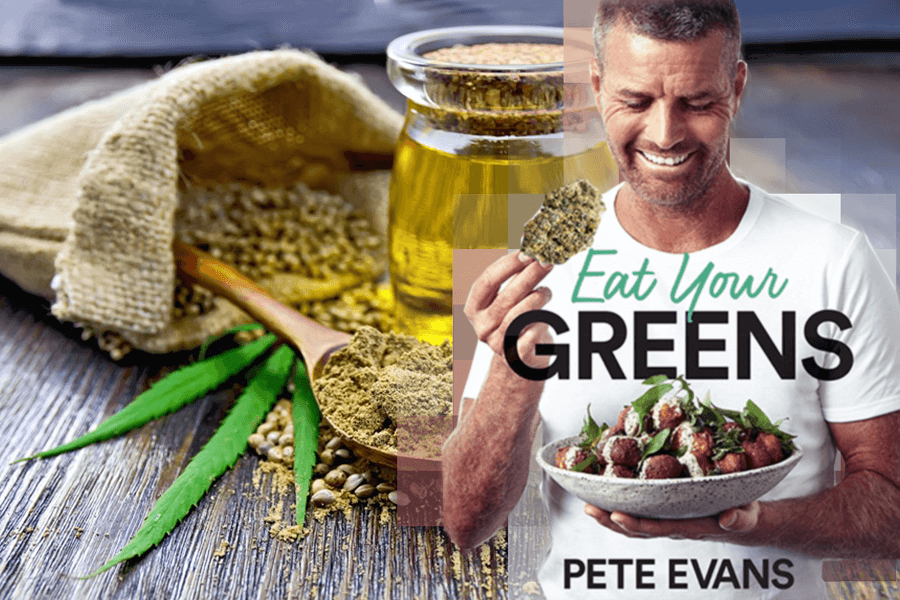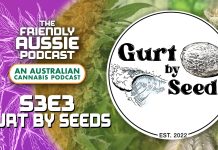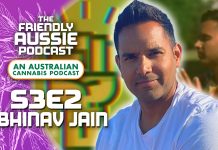In this very special edition, we chat with celebrity chef-come-cannabis-advocate Pete Evans. We met this man by making a meme about him; now, he’s sitting down with us to speak about all things unrelated to kitchens. In our short time together, we covered psychedelics, his new film ‘The Magic Plant’, his experiences with cannabis cultures across the globe, life, and everything in-between.
This is the interview you will read nowhere else online.
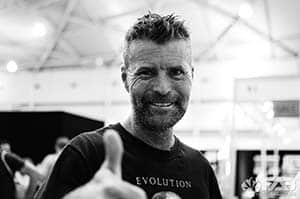
FAB: Your upcoming book, when is that coming out – and what is it about?
Evans: Still working that out with the publisher at the moment, but I would say it would be sometime early next year.
It’s great — I’m doing it with Dr. Dustin Sulak, a cannabis doctor from Maine over in the United States. He is a remarkable individual and has a website called Healer.com. Basically, it’s an online program for people to learn about cannabis and (its) health benefits.
I was lucky enough to interview him on my journeys through the States . . . we created a friendship and relationship and I asked him if he’d love to partner with me on this upcoming book, and he graciously agreed. So, I’m pretty excited about that!
FAB: What else were you doing in the US?
Evans: Yeah; so, we are in post production right now of our cannabis documentary called The Magic Plant.
FAB: Is this the follow up to The Magic Pill?
Evans: Yep, it is! I guess it doesn’t come as any surprise that I’m very interested in health and nutrition… and after The Magic Pill, I’ve felt I’ve covered the food side of health pretty well.
FAB: The Magic Pill was removed from Netflix, I’m reading?
Evans: Don’t believe anything you read mate, it’s all bullshit (chuckles). There’s no way that anyone could ever remove it from Netflix, and no: it hasn’t been removed from Netflix. It is actually on Netflix in pretty much every territory around the world and translated into every language around the world.
FAB: So what’s all the controversy about?
Evans: The then President of the Australian Medical Association felt that it was a dangerous film to put out there (laughs), because it promotes eating meat and vegetables . . . (continues to laugh). Look, I’ve been around long enough — whenever anybody has an issue with anything that I do, it generally relates back to their income being threatened, or their industry being threatened. For them to be able to provide for their shareholders or stakeholders or themselves in a financial way. It’s always to do with money – it’s nothing other than them protecting their income stream.
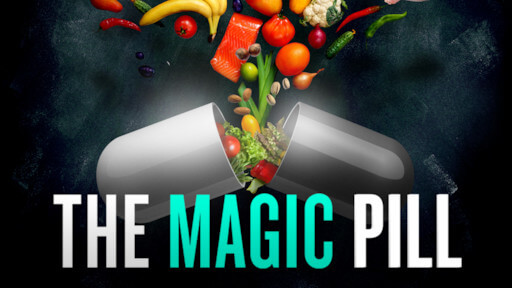
And for me, if I’m promoting a lifestyle approach that is based around meat and vegetables, which we show in the film, can have such a profound effect on so many individuals. You know, we’re talking about getting off medication for Type 2 Diabetes — we can completely reverse that in people — from this simple approach, other people are getting off anti-depressants. The list goes on and on.
Yeah, and I’m 1000% never saying that modern medicine doesn’t have its place. I said that in the film. It’s about using the best of both worlds — our ancient wisdom that we can learn from our ancestors — but also modern medicine. There has to be that relationship and connection — it can’t just be one or the other.
After The Magic Pill, what other tools for health are there out there, apart from food? And cannabis kept circling around — and I thought “let’s explore this”. A lot of people are saying cannabis is helping them with their cancer, or helping with their Crohns disease, or helping with their depression and anxiety.
So, I’m a curious member of society… and I felt like I wanted to learn the truth. Well, as much as I could gather, on an adventure to educate myself. And that’s what this is really about — can we ever get information in a way that’s non-biased? All you have to do is open up any mainstream media article, and it’s always very biased. We have these opinions and agendas that are pushed through.
So I thought — “Well okay, is this the magic plant? Can it do all of these things, or is it a placebo, or is it just another tool that we may be able to use?” And you know, to be honest with you, I think it’s just another tool from the plant kingdom that has amazing health properties if used respectfully and if used in the right way.
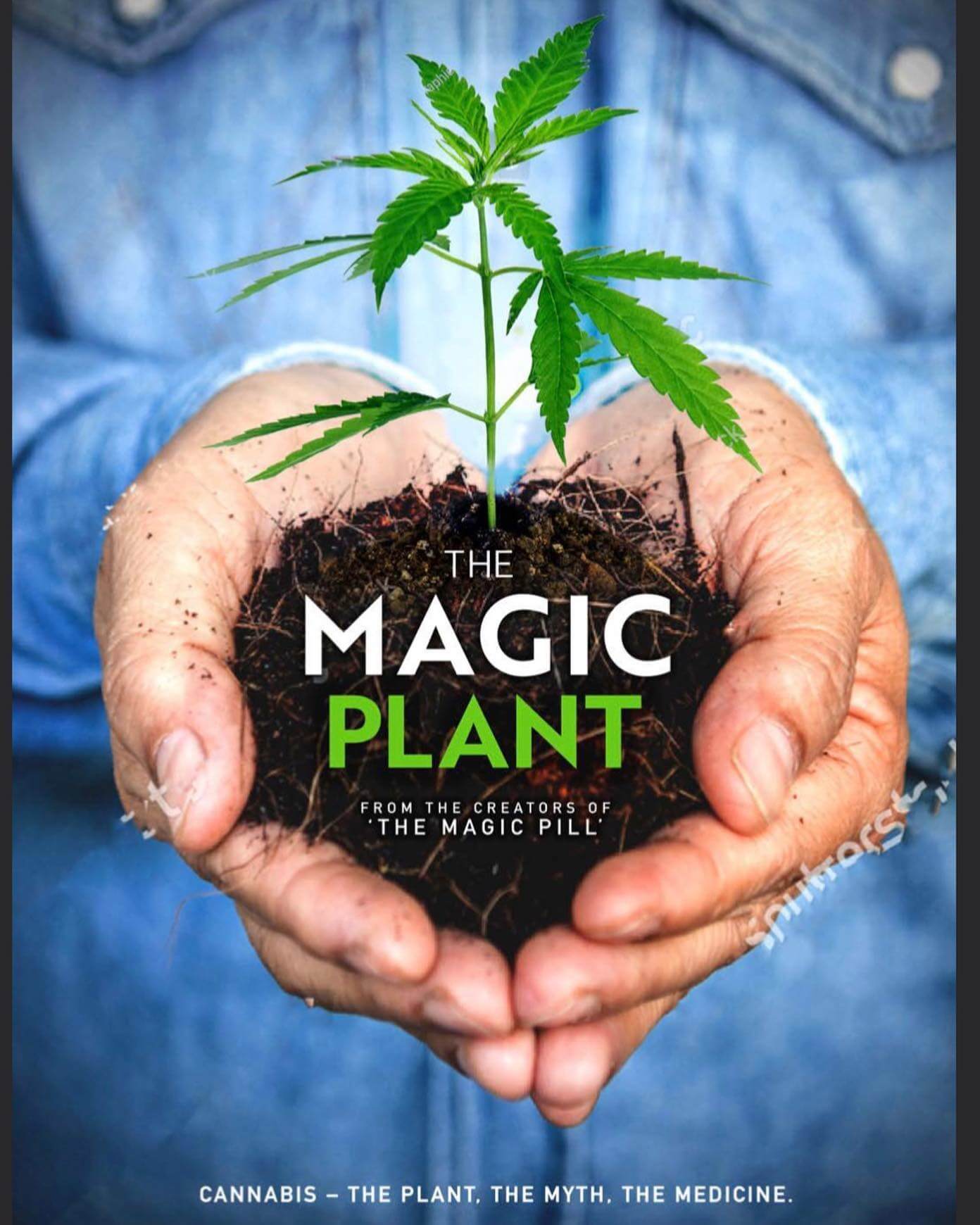
FAB: Is The Magic Plant going to be on Netflix?
Evans: I have no idea where it’s going to end up. I self fund these ventures, just on the belief that it’ll get to the audience that it needs to get to at exactly the right time, when somebody is open to receive it. At the moment I don’t have a distribution in place — just like I didn’t when I made The Magic Pill. Let’s make it, let’s finish it, let’s see if we’re happy with it and then that becomes the next journey: where is it going to go to. And I trust in the universe, for the right path in all of this.
So The Magic Plant… is it a magic plant? For a lot of people it is, but I also believe that you can’t put all your eggs in one basket. Whether it be just nutrition, or just cannabis, or anything that is a healing modality, I think that we need to be very balanced and have an open mind to all the pillars of health. As I’ve said before, you can eat all the paleo food or ketogenic food in the world — organic — and still suffer disease.
Same thing with cannabis – you can use cannabis, and it may help with a lot of these issues, but again if you’re not having a nutritional foundation that is in line or healthy with your body all the cannabis in the world isn’t going to give you long-term sustainable health. If you’re filling yourself with foods that are causing insulation. Cannabis may help suppress that and help deal with it, and take pain away.
But this is where I see it: cannabis plus diet are two of the most amazing tools we have. Then, what else is there? There’s movement, there’s play, there’s connection to nature there’s how we think and how we feel are based around our own personal belief systems. And the third film, that’s what I’m going to be exploring, is that third realm — as the other tool for long term sustainable health is how do we feel, how are our belief systems set up and can we change these in a positive way?
FAB: What introduced you to “the magic plant”?
Evans: Ah – I was actually going to be doing a film about psychedelics. I felt that going from “The Magic Pill” to a film about psychedelics was probably too great of a leap (chuckles), and for some reason cannabis just entered my reality — sorta twice within 24 hours — and whenever anything like that happens to me throughout my life, as soon as something knocks on my door a couple times in very short periods of time I take a great interest in trying to understand what that message is, or why I’m being introduced to this. I sat and meditated about cannabis and I was like “uh-huh, yeah, this makes sense — maybe I’ll make a film about cannabis.”
We can eat cannabis, we can juice it, we can put it in salads, we can use it as a herb in our cooking. And I felt like it was probably the right step from The Magic Pill to create a documentary about a psychedelic — because cannabis is considered these days by certain therapists — that it is a psychedelic substance.
So, maybe this a nice stepping stone for the film that I was going to make, that was going to be my third film. You know, let’s take people on this journey of self discovery about this one plant, so that when we do go and explore the world of other psychedelic plants and animals that are out it won’t seem such a ahhh (chuckles) such a leap . . . it’s an evolution!
FAB: So we’ve got The Magic Pill, The Magic Plant and then what? The Magic Carpet Ride?
Evans: (laughs) No, no (chuckles) nothing like that — the working title is ‘Awaken’. And it’s about different modalities for an awakening in consciousness on the planet. Psychedelics won’t be the whole film, it’ll just be a chapter of it. Other modalities and techniques and interviews of people that are changing the planet in a very conscious way.
So, it’s not a film about psychedelics now — and that’s interesting, because that’s what I thought I was gonna make — (laughs) and cannabis actually taught me — you know — like “maybe let’s put that on hold for now, let’s do this (instead). And because I put that on hold I’ve got a very different idea about my third film now. So I’m trusting in the process, as it is meant to be.
FAB: Does advocating cannabis have any implications on your public image? I mean you’re kind of the “bad boy” of MKR, right?
Evans: (chuckles) I wouldn’t say that actually, I’m sorta probably “the boy next door” so to speak. I don’t think there’s anything bad about promoting cannabis, because we’ve got doctors in this country — very distinguished doctors and medical professionals, that are promoting this. I would just love to see it being grown in our backyards, along with our parsley or basil — or whatever other herb we’ve got in the ground. I believe it is a human right — for any adult — to be able to grow their own herbs that they can use for food and medicine. And I think cannabis can be used for both.
I’ve juiced cannabis before, I’ve eaten cannabis before, I’ve turned it into medicine before — and I’ve seen the benefits that come from all of those different methods. I’ve seen the joy the elderly get from actually growing cannabis in their backyards, in certain parts of the world where it is legal. I don’t think there should be a law that should stop us from being able to grow it for our own personal use. Whether we decide to cook with it, use it as an aromatherapy oil or make a balm out of it to put onto our skin. For anybody that wants to use it as a recreational tool — if they’re not doing it in a way that’s hurting anybody else, then so be it.
FAB: Every country where it’s been decriminalized or legalized, we’ve seen a decrease in the number of deaths and injuries associated with cannabis and drug use; Portugal for instance.
Evans: I was just in Portugal and Canada and the U.S. (and all the states where it’s legal), and society is functioning as it once was. Cannabis hasn’t turned it into a crazy town – or a crazy country, in the case of Portugal. People go to work, and they go about their business. Some people I know, I’ve met the people that actually go to work having consumed cannabis. For them, they’ve worked out what strain or cultivar actually makes them more creative or present, while they’re in that work experience.

So, it’s really interesting, and I’d love to say – it’s not one size fits all. Some people would do better off never ingesting it as a psychedelic, or in a way that has activated THC in it. Whereas some people can and have greatly benefited over the course of their lives, and it’s become an ally for them — instead of a destructive force.
Everything can be abused, and I’ve seen cannabis be abused, as well. Like alcohol, or any other substance. We’re seeing an abuse of sugar in our population at the moment (laughs), nobody has outlawed sugar or refined carbohydrates even though it’s killing people prematurely and putting them into hospitals, but this one plant (cannabis) seems to be helping a lot of people.
FAB: What was your first experience with cannabis and when did you have your first experience?
Evans: Yeah, definitely by the age of 16, I would say. This is the other thing: at that point in time, I didn’t know what I was getting. You were getting it from a mate of a mate of a friend. We don’t know the quality … we didn’t know how it was grown, what it was sprayed with — whether it was actually cannabis.
Adding to that, you’ve got the issue of trying to smoke it in a place where you’re not going to get caught, get seen, be smelt. And then when you do have it, what’s going to happen to you. Having that whole paranoia — fear around it.
My experience with understanding how human emotional patterns and beliefs are set up — that can be very destructive for people and their experience and their relationship with cannabis. You know, it becomes shameful — you feel guilty, and you set up this whole thing around paranoia and fear. If we were educated properly from our parents, or if there was an education system in place, and you knew that what you were getting was grown organically and you knew it was this cultivar, and this much of THC and it’s from this type of plant.
(With sativa) you may feel a heightened sense of awareness, you may see colours a little more vibrantly, you may feel a little more euphoric, you may hear music in a way you’ve never heard before, or watch a movie in a way you’ve never seen it before. Alternatively, if you smoke this, or ingest this one (indica) the opposite might happen: you actually might feel like you don’t want to be around too many people, you don’t want to be in strange place, you might just wanna chill out and lie on the ground and look at nature for instance, and not be in any stressful situation.
Could you imagine if it was grown in the back yard and there were three or four different varieties being grown, and the parents actually educated their children about each one and its potential properties and what may happen? And imagine if it was just a micro-dose when somebody was of legal age; that was their first encounter — with their loved ones, or friends, in a ceremonial setting – you know, around a camp fire or something.
I guess what I’m painting here is a very different picture from what my first experience was. I feel like that could potentially have a very different outcome for our youth.
FAB: Do you have a preferred way of consuming it?
Evans: Mate… I’ve consumed it in every single way you can imagine, I’ve juiced it which I think is a wonderful way—
FAB: —Can you explain the process behind juicing your weed?
Evans: Yeah — you put the flower, the leaf, the stalks in. Then you put it through a cold-press juicer and out pops like a wheat-grass shot. That’s very beneficial for people that have gut disorders like Crohns disease, irritable bowel syndrome, ulcerative colitis — it has amazing benefits for that.
So, I’ve consumed it that way; I’ve consumed it in leaves in salads; or tempura of the leaf and that’s a wonderful way if you add it into a meal. I’ve had it as a tea; I’ve consumed it as edibles — whether it be chocolates or dinners. I’ve vaporized it; I’ve smoked it in a joint; I’ve smoked bongs before; I have made it into an oil and used it as a balm; I’ve used suppositories — you know where you umm (chuckles) — stick it up your bum… and that has great healing properties for people with digestive issues. I’ve consumed it as capsules when I’ve been travelling overseas — you can buy capsules of it and you have it just before you go to bed.
This is why I think it is “the magic plant” — there’s something for everybody, but nobody is forced to have it either. In my research, we have an endocannabinoid system and a lot of people these days seem to be deficient in that. So, how you get it into you is up to you. I would just have an open mind, and explore what you can within the legalities of where you are.
FAB: Would you like to add anything share with the Australian cannabis community, Pete?
Evans: I would love for the cannabis community to join forces, so to speak. Whether its the medical side, the recreational, the black market — or the green market, grey market, whatever you want to call it — the growers, I think we need to form a community of like-minds and keep pushing to make it legal to grow it in our backyards and for personal consumption. I mean, that’s where I see true liberty and true freedom, when it comes to this plant.


